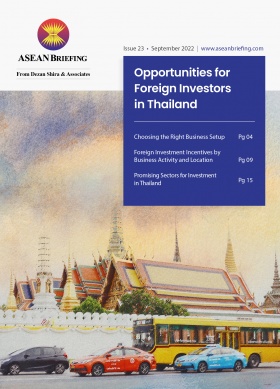Malaysia’s General Election on Nov 19: A Quick Guide
Malaysia will hold its 15th general election on November 19, 2022, in the hope it will solve the political instability that has rocked the country since 2020, and which has claimed the jobs of two Prime Ministers.
The announcement to hold a general election was made on October 10 when Prime Minister Ismail Sabri Yakob dissolved parliament after a meeting with the King, Sultan Abdullah Ahmad Shah, who has absolute discretion on whether to consent to a request to dissolve Parliament. A federal election is normally held once every five years and the next one was due in 2023.
With no certainty of a clear winner, the elections see a return to power of Barisan Nasional, the coalition that has ruled Malaysia from independence until 2018, or a possible hung parliament.
The election contenders to look out for
Barisan Nasional
Barisan Nasional (BN) has promised to keep Ismail Sabri Yakob as Prime Minister and end the political squabbling that has plagued Malaysia since 2020. BN has fielded 178 candidates for the election.
At the height of its power, the coalition consisted of 14 parties. However, the 1MDB scandal tainted the coalition which turned voters against it in 2018. BN now consists of Sabri’s United Malays National Organization (UMNO) (the largest party in the coalition and its founding member), the Malaysian Indian Congress, the United Sabah People’s Party, and the Malaysian Chinese Association.Pakatan Harapan
The Pakatan Harapan (PH) coalition brought an end to BN’s reign in 2018, the coalition is led by Anwar Ibrahim, who was former Prime Minister Mahathir Muhammad’s deputy between 1993 to 1998 before he was dismissed and imprisoned from 1998 and 2004, a move Anwar claims was politically motivated.
Anwar has been named PH’s candidate for Prime Minister. This is the second time Anwar has helmed the opposition campaign, and possibly his last chance to lead Malaysia. Pakatan Harapan is the largest opposition coalition and has fielded some 206 candidates.
Perikatan Nasional
Perikatan Nasional (PN) is a coalition that brings together two parties, Parti Pribumi Bersatu Malaysia (BERSATU), and the Pan Malaysian Islamic Party. The coalition is led by former Prime Minister Muhyiddin Yassin, who was Prime Minister for only 18 months after being sworn in March 2020.
Gerakan Tanah Air
The Gerakan Tanah Air coalition is headed by senior statesman Mahathir Muhammad, who at 97, is contesting his seat for the northern constituency of Langkawi at the general election.
Mahathir spent 22 years as Prime Minister in his first stint which ended in 2003. He then returned as leader of Pakatan Harapan in 2018 and led the coalition to victory over Barisan Nasional. His second term as Prime Minister ended prematurely in 2020 when his then party BERSATU instigated an internal coup, bringing BN back into the power structure. Mahathir resigned from his position as Prime Minister but was then expelled from BERSATU, allowing for Muhyiddin Yassin to take over, and eventually become Prime Minister.
The Malay votes
As with past elections in Malaysia, receiving the most votes from the country’s ethnic Malays will be key to winning the election. The Malays comprise approximately 69 percent of the total population. The core issues of race, religion, and royalty affect the rural Malay votes, and this has not changed for decades. As such, rural Malays are more likely to vote for UMNO or the Pan Malaysian Islamic Party (PAS). PAS has allied with BERSATU under the Perikatan Nasional coalition. Further, Pakatan Harapan is led by Anwar Ibrahim, an ethnic Malay, and has several strong Malay leaders in its coalition.
These three major Malay coalitions could split the Malay vote.
Wildcard factor: Young voters
There are 5.8 million new voters after the government decided to lower the voting age from 21 to 18 and made voter registration automatic. Their political leanings currently remain unknown, and their votes could determine the outcome of the elections.
It remains to be seen if disenchantment with the old guard, who has been tainted with several corruption scandals, will motivate the youth to swing the election to the opposition or force them to stay home due to apathy.
What it means for foreign investors
If history repeats itself and there is another coalition collapse, then this could affect Malaysia’s reputation among foreign investors. Further, without an effective government, the country’s business community could experience delays in the approval of new projects and see delays in the issuance of policies aimed at easing business conditions.
Foreign investors will be especially eager to know the new government’s plans to tackle the shortage of workers in the country. Export-reliant Malaysia, a key player in the global supply chain relies on millions of foreign workers for its manufacturing, plantation, and service jobs which are often shunned by locals as being dirty, difficult, or dangerous.Companies from palm oil plantations to contractors to semiconductor producers are forgoing sales due to a shortage of more than a million workers.
Related Reading
- Malaysia Launches New Social Visit Pass
- Unlocking Your ASEAN Potential – A Guide to Doing Business in 2022
- Crash Course on Starting a Business in Malaysia
About Us
ASEAN Briefing is produced by Dezan Shira & Associates. The firm assists foreign investors throughout Asia and maintains offices throughout ASEAN, including in Singapore, Hanoi, Ho Chi Minh City, and Da Nang in Vietnam, Munich, and Esen in Germany, Boston, and Salt Lake City in the United States, Milan, Conegliano, and Udine in Italy, in addition to Jakarta, and Batam in Indonesia. We also have partner firms in Malaysia, Bangladesh, the Philippines, and Thailand as well as our practices in China and India. Please contact us at asia@dezshira.com or visit our website at www.dezshira.com.








